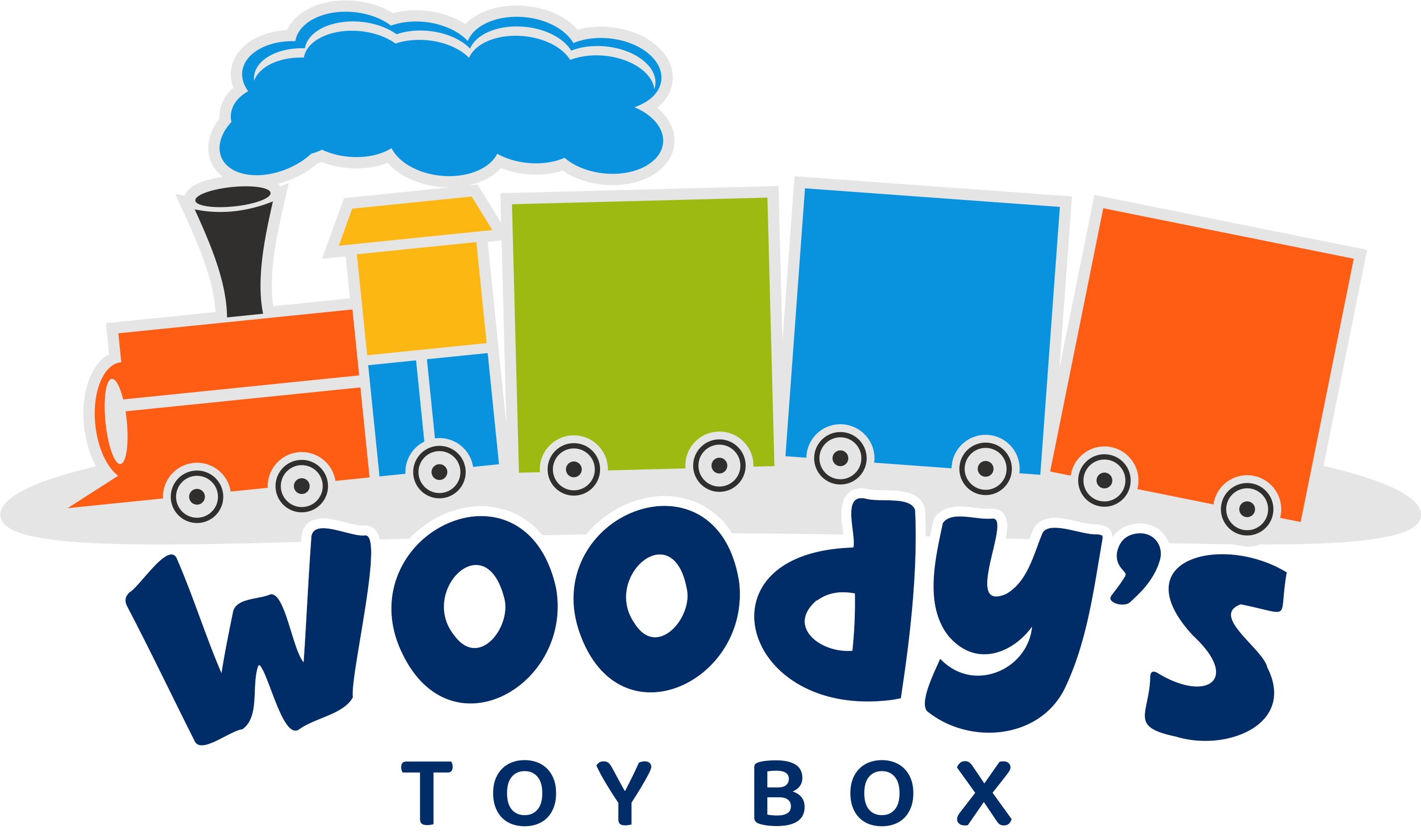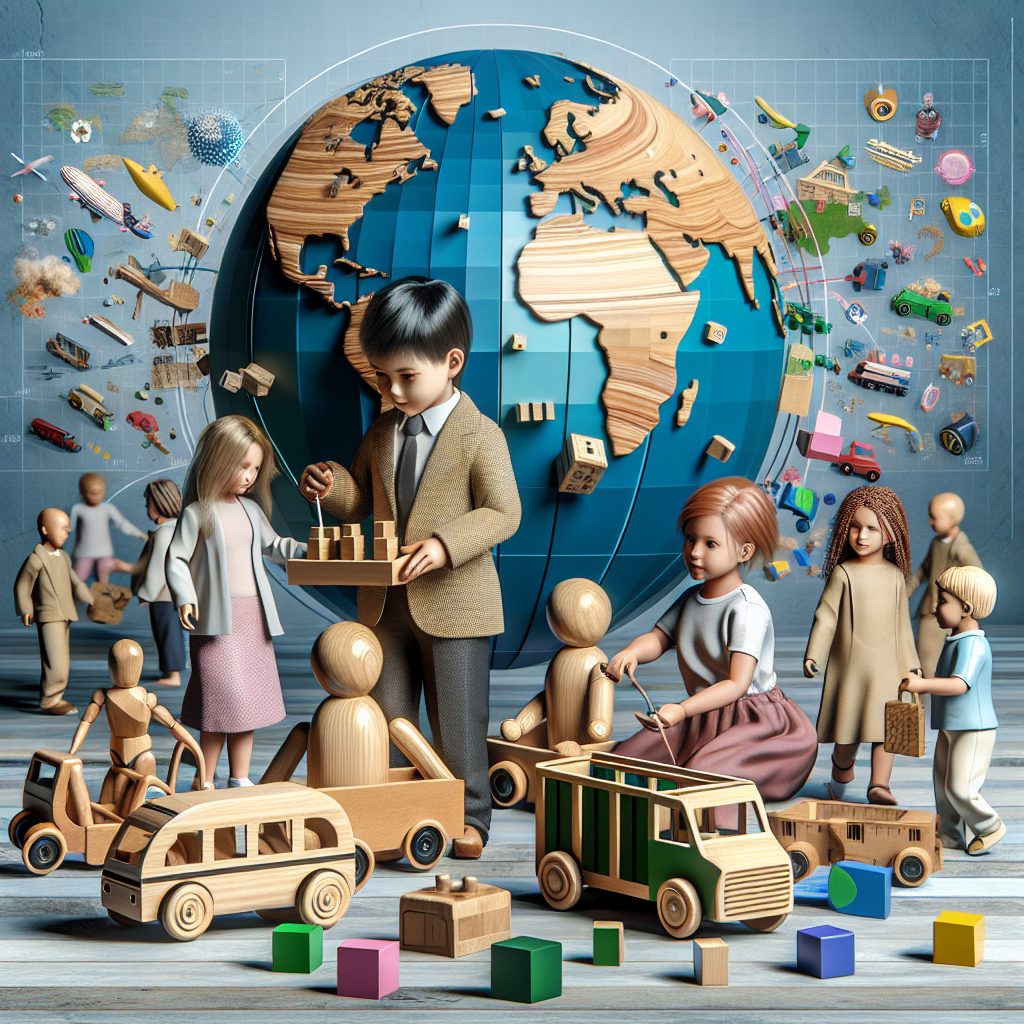Wooden toys play a crucial role in the global development of children, offering a wide range of benefits that contribute to their growth and well-being. Unlike their modern plastic counterparts, wooden toys provide a unique sensory experience, allowing children to engage with different textures, smells, and sounds. The natural qualities of wood also make these toys safe and non-toxic, reducing the risks of health hazards caused by chemical substances found in plastic toys. Furthermore, wooden toys are known for their durability, encouraging children to engage in imaginative and open-ended play, enhancing their creativity and problem-solving skills.
Moving forward, this article will delve into the specific impacts of wooden toys in child development and highlight their unique features. By exploring the cognitive, physical, and social benefits of these toys, we aim to provide parents and educators with a comprehensive understanding of how wooden toys contribute to their children’s growth. Additionally, we will discuss the key takeaways from recent research and expert opinions that can guide you in making informed decisions when choosing toys for your child. Read on to discover the remarkable advantages of wooden toys and how they can positively shape the development of your little ones.
Key Takeaways
1. Wooden toys play a vital role in supporting global child development due to their ability to stimulate imagination, creativity, and problem-solving skills in children.
2. These toys are considered a safer and healthier alternative to plastic toys, as they are free from harmful chemicals and encourage sensory exploration and fine motor skill development.
3. By engaging with wooden toys, children can develop essential social skills such as sharing, collaboration, and communication, as well as improve their cognitive abilities and attention span.
4. Wooden toys promote open-ended play, allowing children to explore and experiment freely, thus enhancing their learning experiences in a holistic and developmentally appropriate manner.
5. Global efforts to emphasize the significance of wooden toys in child development, along with increased awareness among parents and educators about their benefits, have led to a resurgence in their popularity and availability worldwide.
What is the Impact of Wooden Toys on Global Child Development?
1. Cognitive Development
Wooden toys play a crucial role in enhancing a child’s cognitive development. The tactile nature of these toys helps children to explore, manipulate, and problem-solve. As they interact with the toys, children develop their fine motor skills, hand-eye coordination, and spatial awareness. The simplicity of wooden toys encourages open-ended play, which boosts creativity, imagination, and critical thinking abilities.
2. Sensory Stimulation
Wooden toys engage a child’s senses in a variety of ways. The natural textures, weight, and warmth of wood provide sensory stimulation that encourages sensory perception and exploration. Different textures, shapes, and colors of wooden toys stimulate the senses of touch, sight, and sometimes even sound. This multisensory experience aids in the development of sensory processing skills, helping children understand and interpret the world around them.
3. Emotional and Social Development
Wooden toys promote emotional and social development in children. By engaging in imaginative play with wooden toys, children learn to express their emotions, ideas, and stories. They develop empathy and social skills as they engage in pretend play, taking on different roles and interacting with others. Wooden toys that encourage cooperative play also foster teamwork, negotiation, and problem-solving skills, vital for building relationships and developing emotional intelligence.
4. Environmental Awareness
Wooden toys have an advantage over plastic toys when it comes to environmental impact. By choosing wooden toys, parents can instill a sense of environmental responsibility in their children. Wood is a natural and renewable resource, and opting for sustainably sourced wooden toys supports eco-friendly practices. Teaching children about the importance of sustainability from an early age helps them develop a lifelong awareness of their impact on the environment.
5. Safe and Durable
One of the significant benefits of wooden toys is their safety and durability. Unlike plastic toys, wooden toys do not contain harmful chemicals such as BPA or phthalates. They are also less likely to break or wear down easily, ensuring a longer lifespan, even with rough play. The durability of wooden toys allows them to be passed down through generations, promoting sustainability and reducing waste.
6. Tips for Choosing Wooden Toys
1. Look for toys made from eco-friendly, sustainably sourced wood.
2. Ensure the toy has a smooth finish without any splinters.
3. Select age-appropriate toys that align with the child’s developmental stage.
4. Opt for open-ended toys that promote creativity and imagination.
5. Consider the size and weight of the toy to ensure it is safe for the child to handle.
6. Check for any small parts or choking hazards.
7. Look for toys that encourage various forms of play, such as pretend play or building.
8. Read reviews and recommendations from other parents to get insights into the quality and educational value of the toy.
Frequently Asked Questions
1. Are wooden toys safe for children?
Yes, wooden toys are generally safe for children. They are made from natural materials and free from harmful chemicals often found in plastic toys. However, it’s essential to ensure that the wooden toys meet safety standards and are age-appropriate.
2. What are the benefits of wooden toys for child development?
Wooden toys offer numerous benefits for child development. They encourage imaginative play, promote creativity, improve fine motor skills, enhance problem-solving abilities, and foster cognitive development.
3. How do wooden toys contribute to a child’s social skills?
Wooden toys often require interaction with other children, promoting social skills such as sharing, turn-taking, and cooperation. They also provide opportunities for children to engage in role-playing activities, leading to improved communication and empathy.
4. Can wooden toys help children with sensory development?
Yes, wooden toys can support sensory development in children. They offer different textures, shapes, and weights, stimulating the senses and aiding in sensory exploration. This helps children develop their sensory processing skills.
5. Are wooden toys more durable than plastic toys?
Generally, wooden toys are more durable than plastic toys. They are often made from sturdy materials that can withstand rough play and can be passed down from one generation to another. However, it’s important to check for quality craftsmanship to ensure their longevity.
6. Do wooden toys limit a child’s creativity compared to electronic toys?
No, wooden toys do not limit a child’s creativity. In fact, they often enhance imaginative play as children have the freedom to create their own scenarios and use the toys in various ways. Electronic toys, on the other hand, may limit creativity as they usually have predefined functions.
7. Are there any age restrictions when it comes to wooden toys?
Wooden toys are available for children of all ages. However, it’s crucial to choose age-appropriate toys to ensure safety and developmental benefits. Manufacturers often provide age recommendations for their toys, which should be followed.
8. How can wooden toys contribute to language and communication skills?
Wooden toys such as puzzles, building blocks, and role-playing sets can enhance language and communication skills in children. They encourage vocabulary development, storytelling, and role-playing conversations, all of which are essential for language and communication development.
9. Are wooden toys environmentally friendly?
Yes, wooden toys are environmentally friendly as they are made from sustainable and renewable resources. They are biodegradable, unlike plastic toys that contribute to environmental pollution. By opting for wooden toys, you can reduce your carbon footprint and support eco-friendly practices.
10. Where can I find a variety of high-quality wooden toys?
You can find a wide selection of high-quality wooden toys in specialty toy stores, online platforms, and even local crafts markets. It’s important to research the reputation and credibility of the sellers before making a purchase to ensure you’re getting genuine and safe wooden toys.
Final Thoughts
The role of wooden toys in global child development is undeniably significant. Besides offering a safe and eco-friendly alternative to plastic toys, wooden toys foster holistic growth in children. They stimulate their imagination, develop their cognitive and motor skills, enhance social interaction, and encourage creative thinking.
Furthermore, the durability and timeless appeal of wooden toys make them a valuable investment. They can be cherished for generations, providing endless hours of play and learning. By choosing wooden toys for children’s playtime, we contribute to their overall development while embracing sustainable practices and nurturing their connection with nature.

